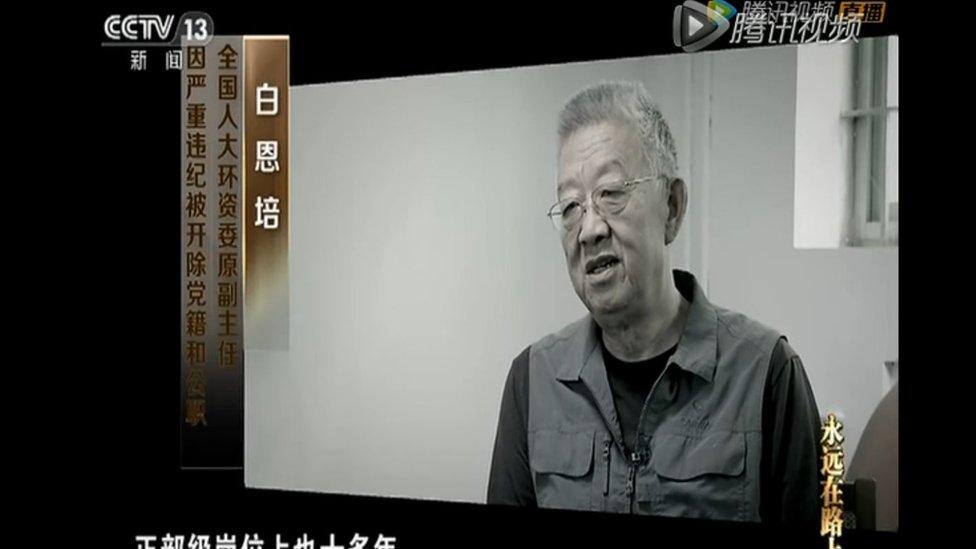China laps up glossy TV corruption drama
- Published
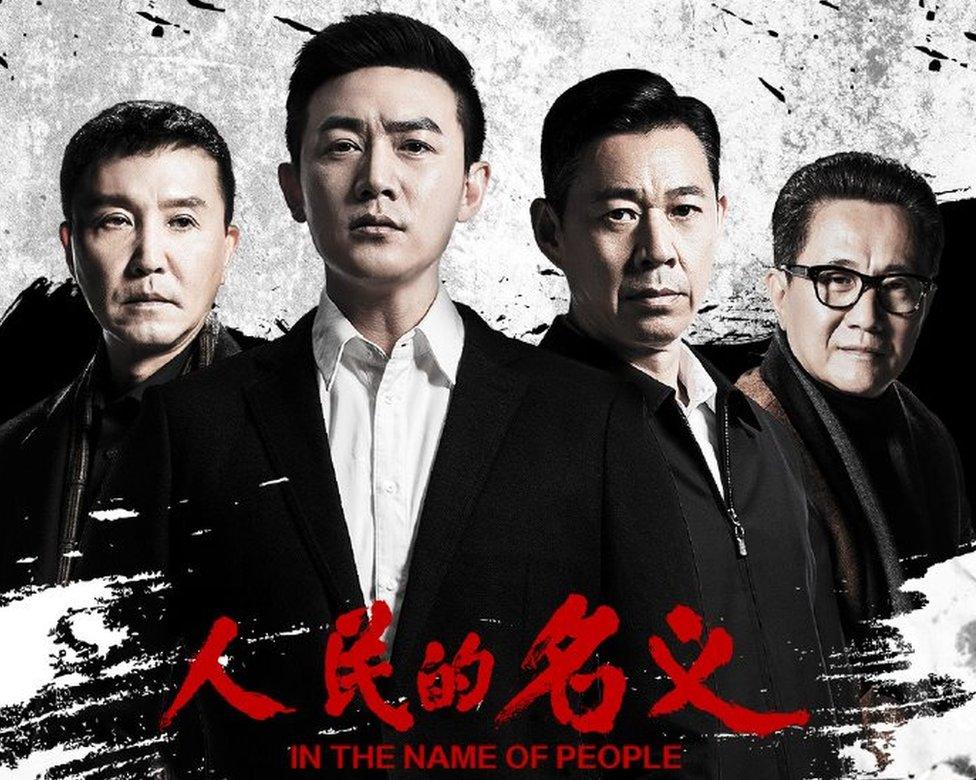
The TV show stars Chinese heart-throb Lu Yi (second from left)
A dashing detective bursts into a secret villa and uncovers huge stacks of cash stuffed in fridges, closets and beds. Meanwhile, the villa's owner - a government official - crawls on the floor and begs for his life.
This is the dramatic opening scene in China's latest hit TV show, In the Name of the People, which made its high-profile debut last month.
The series, about China's anti-corruption campaign, has gripped millions of viewers across the country. Some have compared it to the American political drama House of Cards, which has a huge Chinese following.
In The Name of the People chronicles the internal power struggle of the Chinese Communist Party in the fictional city of Jingzhou, featuring stories about Chinese politics that are often talked about but never seen on mainstream television.
In the show, local government leaders try to sabotage a top justice's arrest order; laid-off workers hold violent protests against a corrupt deal between the government and a corporation; and fake police drive bulldozers into forced eviction sites.
Viewers have been lapping it up. "This TV drama feels so real. It really cheers people up," one viewer wrote on social media network Weibo.
"I shed tears after watching this drama. This is the tumour of corruption that has been harming the people," said another Weibo commenter.
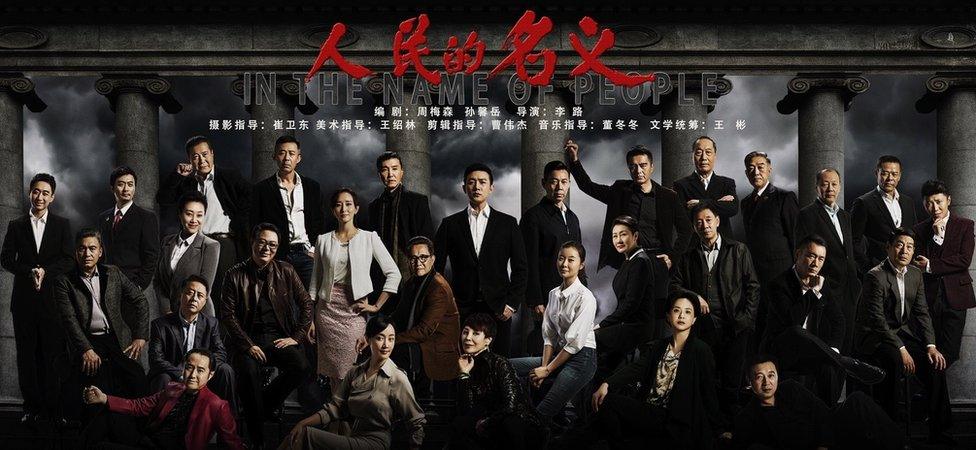
The show, which features a sprawling cast, chronicles the power struggle in a fictional Chinese city government
What makes In The Name of the People remarkable is not just how frankly it depicts the ugly side of Chinese politics, but that it also has the blessing of the country's powerful top prosecutors' office.
More than a decade ago, anti-corruption dramas suddenly disappeared from Chinese primetime television. Authorities in 2004 had decided to restrict the production of such dramas as too many were of poor quality.
But when Chinese President Xi Jinping took power in 2012 and launched a sweeping campaign against graft, anti-corruption got back in vogue.
Chinese state media has extensively covered crackdowns on corrupt officials, and TV networks have rolled out documentaries showing officials confessing on camera and sobbing with remorse - even China's anti-corruption agency did a show about corruption within its ranks.
In The Name of The People is thus the latest piece of propaganda aimed at portraying the government's victory in its anti-corruption campaign.
At least it does a decent job in entertaining viewers, building suspense and intrigue. In one episode an investigator gets hit by a truck just as he is about to brief Beijing on key evidence, while in another the deputy mayor flees the country with the help of a mysterious government mole.

Who's who in China's hit TV show
Hou Liangping
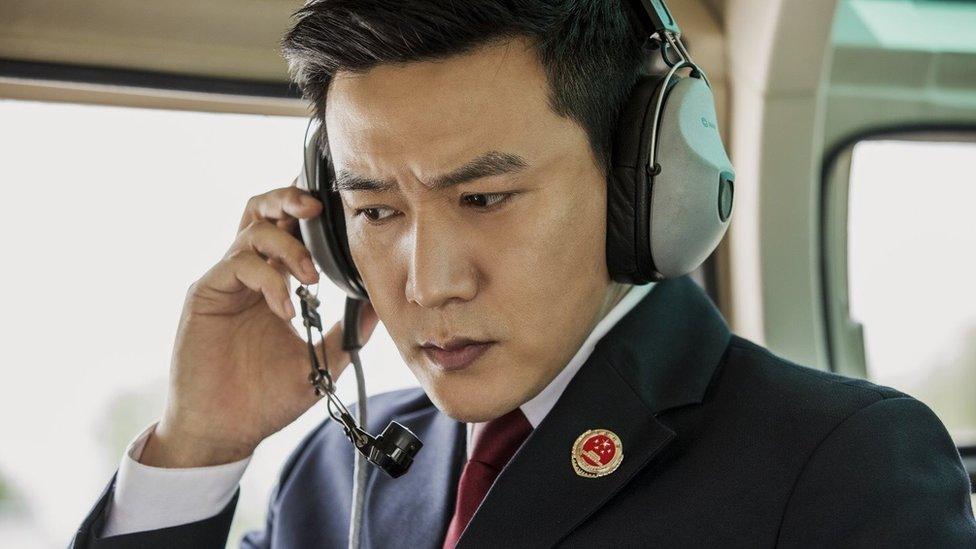
The tall and handsome chief investigator and hero of the show. He is played by Chinese heartthrob Lu Yi, whom netizens have criticised for his awkward acting, particularly in scenes with his screen wife. "Are they a model couple or a fake couple?" complained one Weibo commenter.
Qi Tongwei
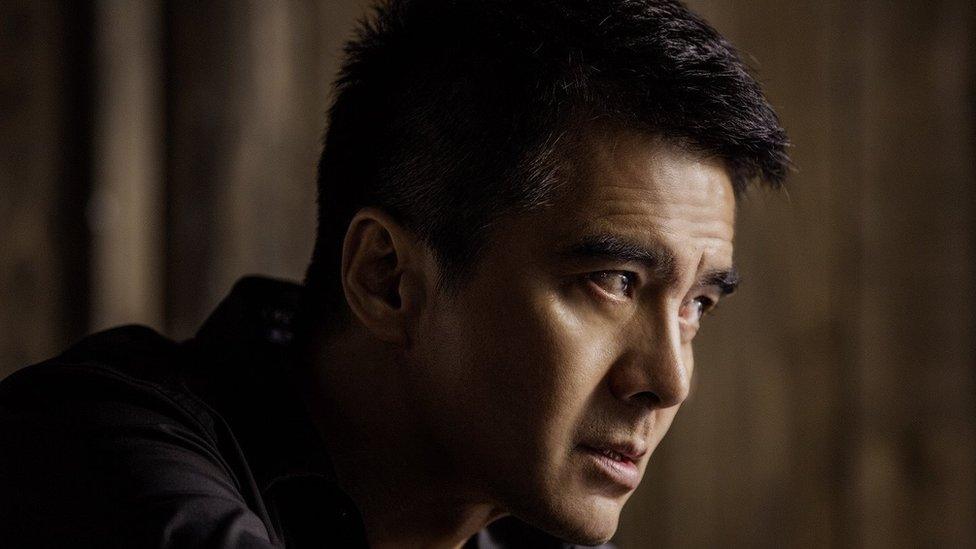
The crafty and calculating public security chief and villain of the show, played by veteran actor Xu Yajun. He appears decent but turns out to be a sycophant, always thinking about his next move to advance his political career.
Li Dakang
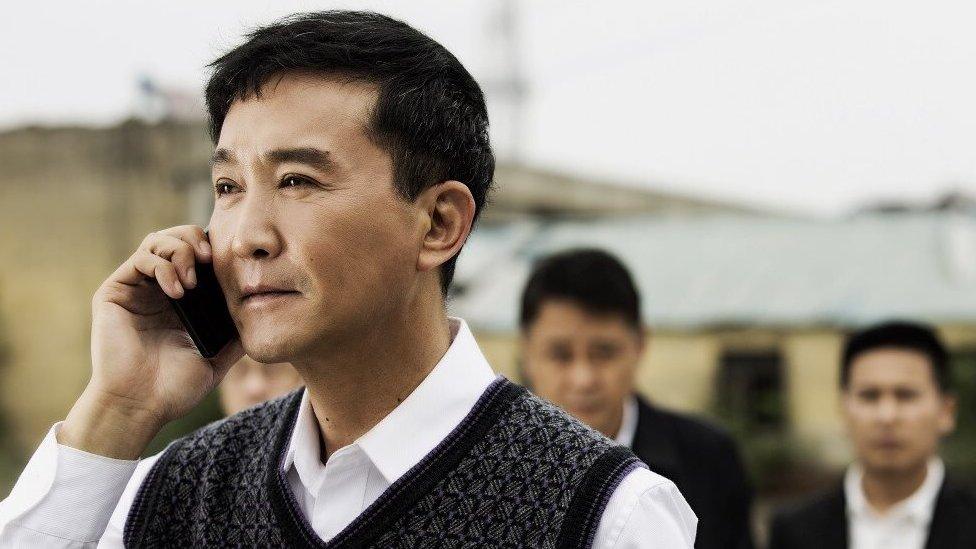
The blunt party chief obsessed with GDP growth and rising political star who likes to chastise his subordinates. Actor Wu Gang rose to fame with this role - viewers now regularly make online memes featuring his character.

The show's screenwriter, Zhou Meisen, is a seasoned writer of anti-corruption fiction and no stranger to censorship by the Chinese government.
He declined to speak to the BBC, saying he "received instruction not to speak to any foreign media".
But in interviews with Chinese media, he expressed surprise that officials approved all 55 episodes of his show - the review team reportedly even called the series "earth-shattering".
"For a long time, many people thought that if we kept our eyes closed, there wouldn't be any corruption," Mr Zhou said. "Many government officials in charge of culture have become security hawks blocking the public from seeing artistic works on anti-corruption."
He said he aimed to show that corrupt officials were not all "monsters" and were real people - but at the end of the day, the good people always win.
He made sure that Hou Liangping - the hero of In The Name Of the People - did not come from a privileged background with a lot of political connections, so that the character would be more "idealised".
"We all badly need heroes, upright law-enforcing heroes like Hou Liangping."
- Published9 January 2017
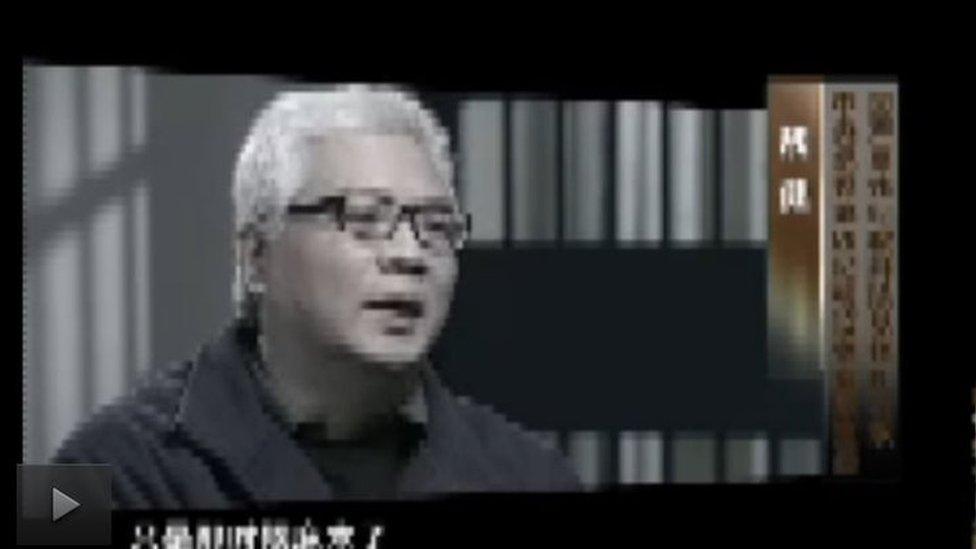
- Published24 October 2016
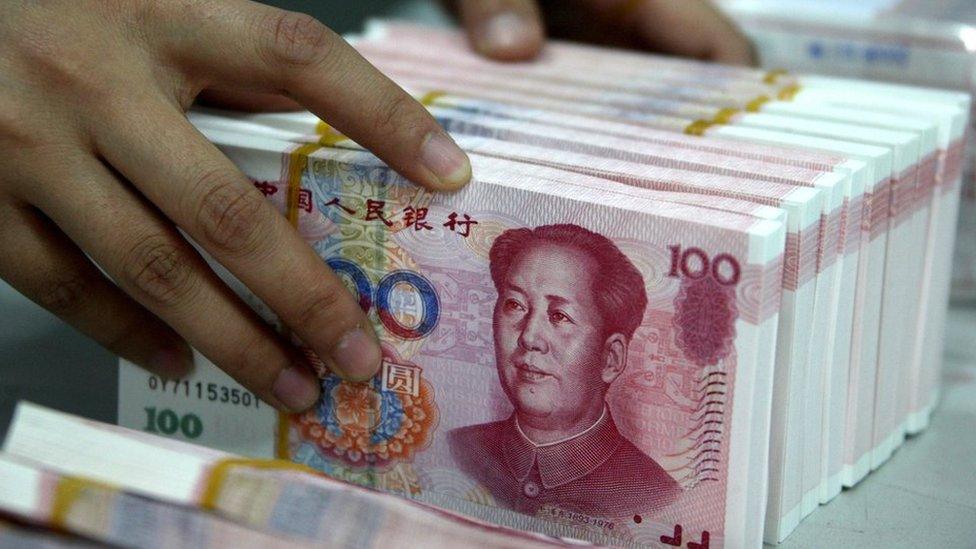
- Published18 October 2016
